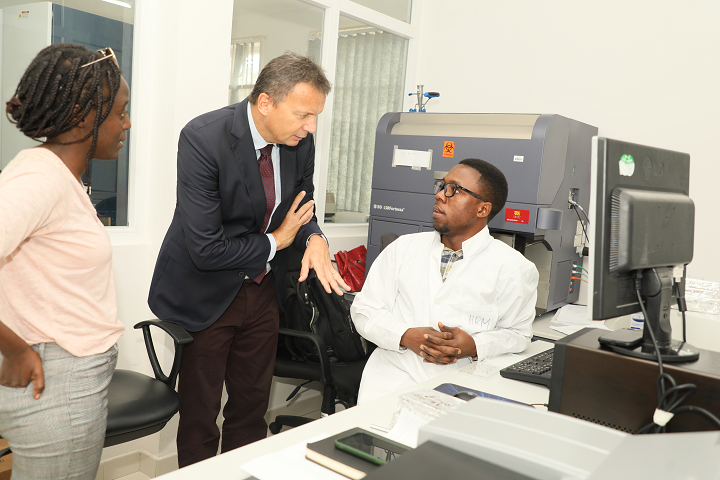Subscribe here for new information from our diverse feeds.
COOPERATION: Envoy affirms Swiss-Tanzania ties through Ifakara

The Swiss Ambassador to Tanzania, Dr. Didier Chassot, has reiterated continued Swiss support to ARCAD institutional development which he said “has proven to be an important international research institution.”
Dr. Chassot sounded the remarks moments after he officially launched the Kingani 56kW Solar System at the ARCAD’s Clinical Trials Facility in Bagamoyo on June 21st 2021. The solar system project is a collaborative initiative between Ifakara, the Swiss TPH, Rudolf Geigy foundation and other stakeholders.
“What we just saw is indeed quite impressive, a remarkable achievement to which I am pleased that Switzerland could contribute, even if only indirectly, as it were, thanks to its longstanding support to ARCAD,” he said, shortly after cutting the ribbon to officially unveil the new project.
Dr. Chassot reminded that since 1982, the Switzerland, through the Swiss Agency for Development and Cooperation (SDC), has provided support to Ifakara in recognition of the win-win partnership between Tanzanian and Swiss research & academia.
“Currently, Switzerland contributes towards IHI’s five year strategic plan (2018-2023) – with its strong focus on innovation and the objective to continue to improve health and wellbeing of the local people,” he noted, adding: “This Kingani Solar System Project is a perfect example of how the ARCAD is strategically positioned to work with public and private sectors both locally and internationally.”
About the Kingani 56kW Solar System
The project was conceived in 2014 to address persistent power challenges at the Institute’s Clinical Trials Facility based at Kingani in Bagamoyo. Due to the sensitivity of clinical trial activities, it's critical to have stable and consistent power supply to run the various equipment and laboratory facilities all the time. Additionally, the solar system solution is expected to relieve the Institute of a huge burden of electricity bills and fuel costs incurred to run standby generators during power outages.
The assessment for the solar system project was made by a Swiss engineering company based in Arusha and afterwards, the Swiss TPH rallied support from different donors and together were able to raise USD 200,000 for the project by the end of 2018. Installation of equipment commenced in November 2019 and was completed in March this year.
The system has an installed maximum capacity of 56Kw/h enough to run all critical areas of the Clinical Trails Facility for 8-10 hours during the day. After officially launching the solar system, Dr. Chassot made a brief tour of Ifakara research platforms, including vector control product testing facilities, the clinical trials facility, the labs and the training center. #